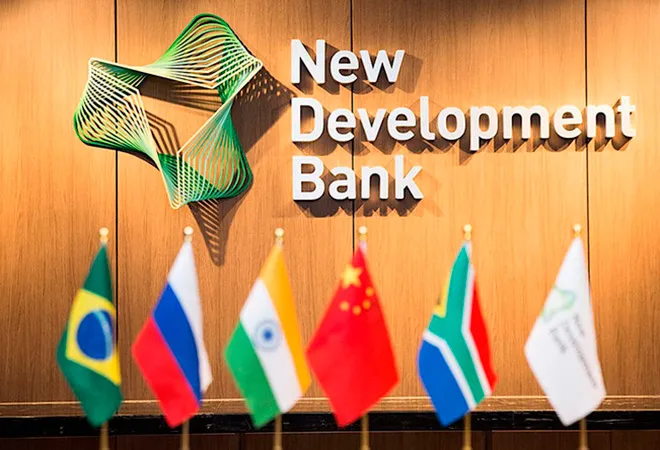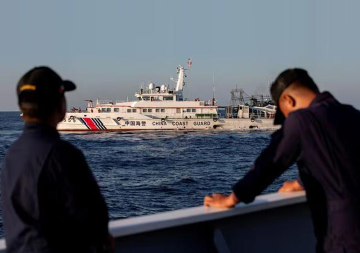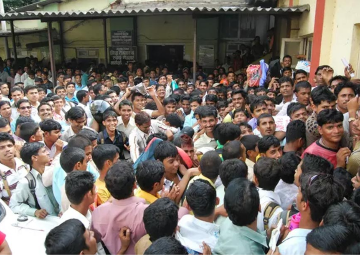
Changing world order
Many pockets in the world today are experiencing something that has not been seen for a long time. A sense of rising ‘populism’ is engulfing the key economies in the world, which mostly defy the natural economic world order that have so far largely been an outcome of globalization.
While the US being the world’s largest democracy remains the cynosure which precipitously claims to be the victim of its own open trade policies that it has propounded since the end of the Second World War, the emerging economies particularly the BRICS (Brazil, Russia, India, China, and South Africa) have not remained unscathed by this development.
While anti-globalization is one thing, a socio-economic renaissance akin to the worldwide pattern is becoming increasingly visible in BRICS economies as well.
It will not be out of place to say that ever since the Arab Spring, the world continues to witness sporadic incidents of discontentment. However, the magnitude of it today seems amplified and has spread to more economies across continents.
The latest in such a fray is Brazil. The largest economy in Latin America, which once showed promise has been embroiled in scandals, faltering economy, high unemployment, and has now recently elected Jair Bolsonaro as its President. He apparently has been one who is known to have radical thoughts with a right wing ideology. During the election campaign he was often been touted as the ‘Trump of the Tropics’ given his controlling working style. A fall in raw material prices and collapsing investor confidence has shaken the Brazilian economy in the last few years. While unemployment hovers around 12%, concerns over maintaining fiscal prudence remains. As the new president assumes power in January 2019, Brazilian businesses are at tenterhooks expecting some market-friendly reforms.
Putin in Russia remains a potent force ever since he came to power in 2000. Post-cold war era he has provided a sense of déjà vu and national pride by re-establishing Russia, bringing stability, and restoring Russia’s influence in global policy. Economically Russia has been facing sanctions from US since 2014, which are preventing it growing to its full potential. Indeed, GDP growth is expected to be around 1.5%-1.8% during 2018-20, but nevertheless Russia may be further impacted if there is a substantial decline in oil prices. Recently, the decision to rise the pension age to manage its fiscal XXX, has sparked nationwide protests. Unfortunately though, as is a typical hallmark of any long serving authoritarian leader, Putin is often alleged to have throttled and not been lenient with the press.
In India, Prime Minister Modi was elected to power with a thumping majority four years back. He vowed to curb corruption, and in the process successfully introduced the Insolvency and Bankruptcy Code in 2016 to clean up the banking sector. His economic policies unlike in the US, have been pro-globalization. Another difference with the US and India is that irrespective of all the criticisms, Trump still continues to be rigid and strive to fulfill his electoral mandate however regressive it may appear to others In contrast, at the tail end of Modi’s tenure there are apprehensions in some quarters with regard to his economic and development policies getting hijacked to meet other objectives. As far as the economy is concerned, India is still one of the fastest growing economies, but given that it is more interconnected globally than it was in 2008-09 when it successfully overcame the global recession, today the economy increasingly faces pressure due to changes in economic conditions overseas.
Xi Jinping has emerged as an astute Chinese premiere in the last five years who harbours a vision to re-build the age old Silk Route.
He not only has set in motion its physical progress, but has also created financial institutions like the Beijing based Asian Infrastructure and Investment Bank (AIIB) to fund this ambition. Yet, Xi has also made legislative changes to anoint himself as the President for life. While China has incrementally progressed over the last two decades, the 2008 financial crisis set America back and China took the opportunity to flourish. Coincidentally, there are similarities between Russia and China. Both economies are not only acerbic to US hegemony and would like to see a weaker Western alliance, but may also end up seeing one of the longest serving heads of nation in modern times, while being accused of curbing journalistic freedom, and access to select websites.
South Africa the smallest amongst the BRICS peer, has enormous resources and great wealth but also vast inequality and poverty. Cyril Ramaphosa who is universally acknowledged as a supporter of democratic ideals, assumed leadership earlier this year at the back of corruption governance, and promises to ameliorate these anomalies. The outlook of the South African economy however is not that promising. The economy is growing below 2%, and various rating agencies have opined GDP growth to decelerate further. Nevertheless, the unemployment rate increased from about 20% in 1994 to about 27% in 2018.
Post the global financial crisis in 2008, the contours of the world’s socio-economic fabric has experienced a phenomenal change - increasing anti-globalization and trade protectionism (initiated by the US and retorted by China), isolationism and economic nationalism (due to BREXIT, Trump, etc.), apart from the pockets of sporadic conflicts (as witnessed in Ukraine, Syria, Yemen, Somalia, etc.).
Most of these dispensations, as in other emerging and developed economies, echoes similar sentiments. They assume everything that has been done in the past was not in the right spirit and order, and hence a sense of renaissance. However, as the world goes through these, it is worth recalling how difficult the changeover to democracy was in the first place for many of these economies.
On the contrary, while appreciating the present day nuances it would be desirable to have more of a balanced narrative, make course corrections wherever required, rather than reinventing the political and socio-economic discourse.
BRICS can do more
In such a situation, wherein large parts of the world economy have been on a ventilator for a prolonged period, the role of BRICS economies becomes poignant. The GDP growth of BRICS has largely been propelled by India and China. Even during the 2008-2009 crisis period, it was these two economies which were the bright spots globally. However, since 2014 there has been some apparent downturn in the BRICS economies, albeit India which started experiencing it after two years. Countries like Brazil and Russia even showed negative growth rates in some of the years that followed crisis which emanated from US. The situation as experienced by trade war, and rising risks of protectionism is poised to decelerate the BRICS economies in next few years if things do not change for better.
Even after a decade of cooperation, share of intra-BRICS imports have increased from just 15% in 2008 to 17% in 2017. The irony is that with 26% of land area and 43% of the world population there is no dearth of trade and investment opportunities.
It is important that BRICS economies look beyond the intermittent, standard solicitations, and rather work together to facilitate concrete trade and investment mechanisms within themselves and become a bloc to reckon with.
The New Development Bank which has undoubtedly been the biggest achievements of this bloc would require spreading itself across its member states – both in terms of the financial proposals undertaken and its physical presence. NDB should strive to become the key pivotal financial institution facilitating sustained business within BRICS. In fact the success of NDB should be built upon to create other institutions of eminence for the bloc.
BRICS has come a long way in the last ten years, and it may be natural to have some ideological dissonances due to evolving geo-politics and changing priorities. Today for example the historical rivals China and Russia, under the US pressure are becoming allies and forming bilateral economic and strategic relations, and in the process raises India’s eyebrows. However, it is important to identify the common threads that underline the tenet of the formation of this bloc, which amongst others was promoting trade and investment, respecting sovereignty and democratic decision making, while promoting multilateralism.
Recently, French President Macron organized a Paris Peace Forum which was attended by many world leaders, making an impassioned plea for world peace and cooperation, and continued work towards multilateralism. As countries on both sides of the Atlantic are looking inward and betterment and resentment festers, it is an opportunity for the BRICS economies to embrace globalization more than ever before. The G-20 commune are about to meet later this month in Argentina. It would be important for the BRICS which constitutes 13.24% of World Bank voting power and 14.91% of IMF quota shares, to chalk an agenda to respond to the current challenges for themselves and for the world.
The views expressed above belong to the author(s). ORF research and analyses now available on Telegram! Click here to access our curated content — blogs, longforms and interviews.




 PREV
PREV


